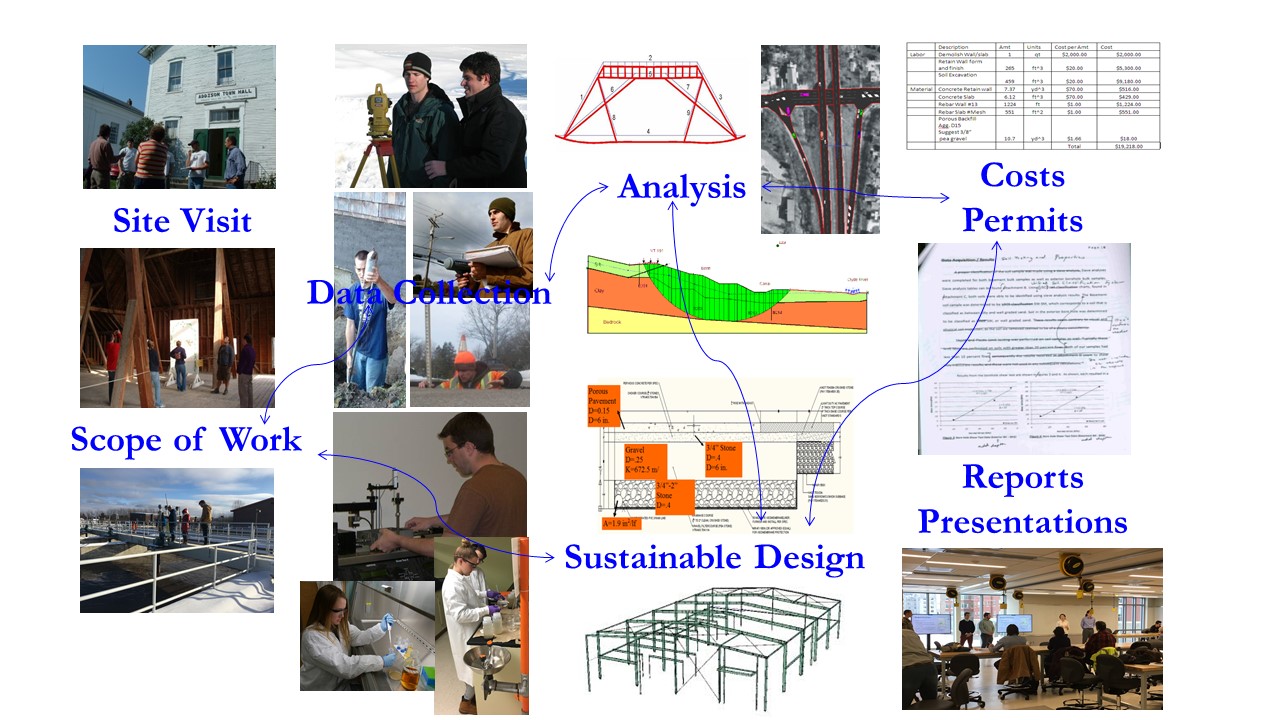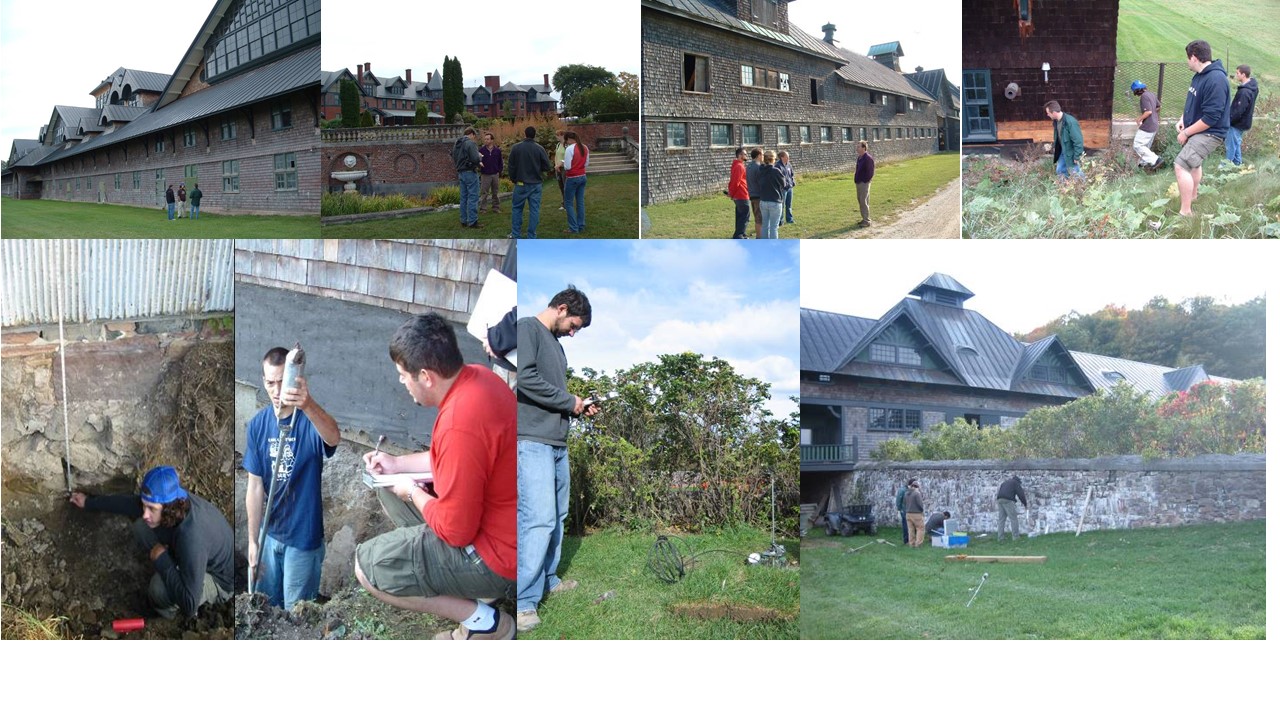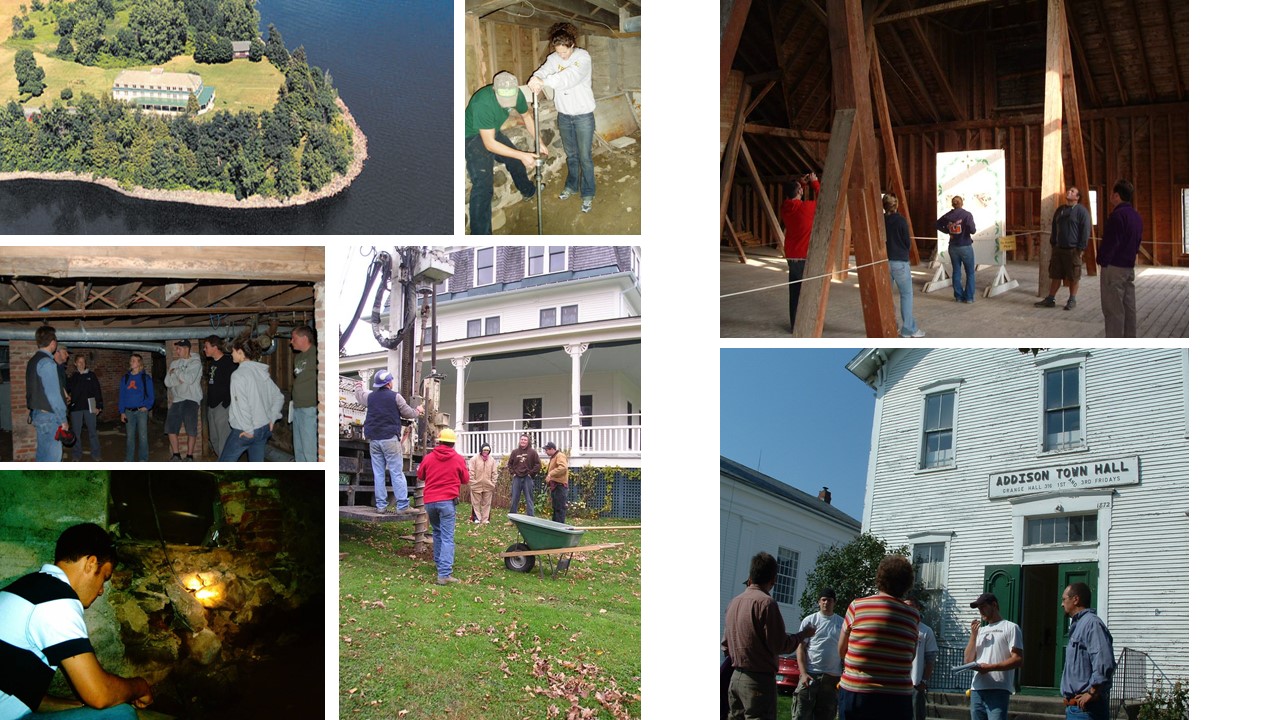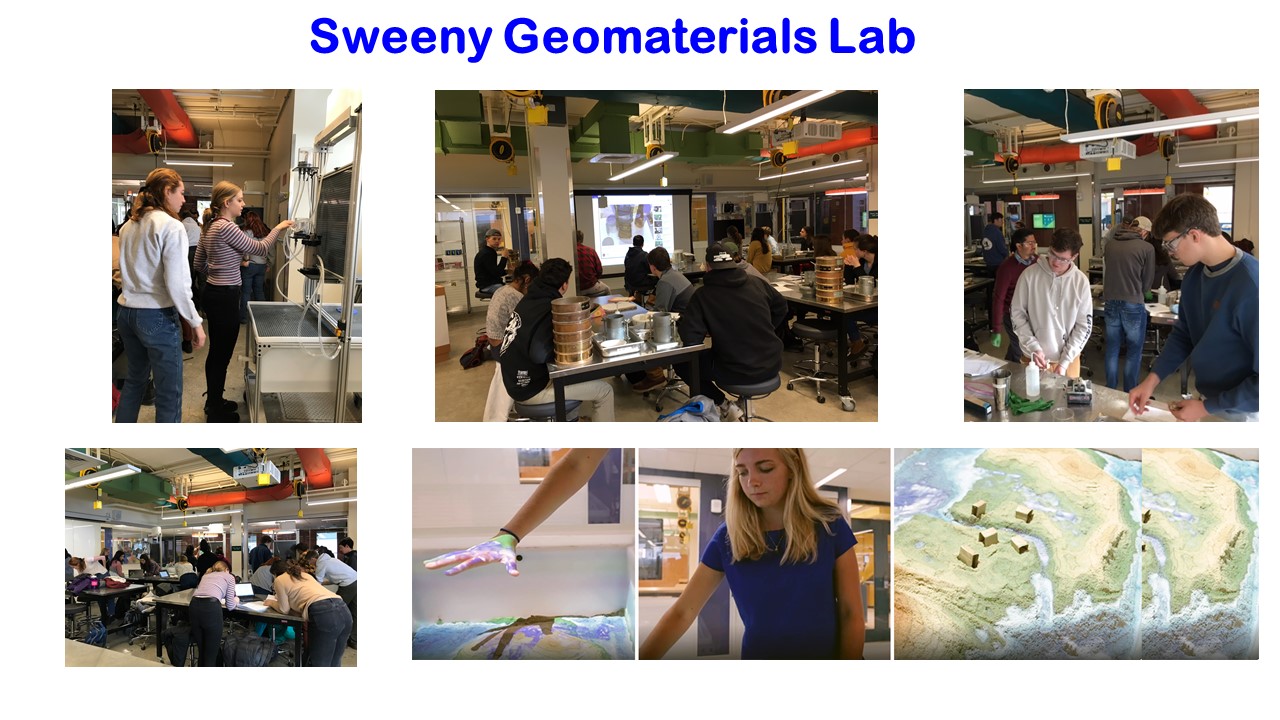Courses Taught
CE 001 Statics: This is a three-credit sophomore level course required of all civil, environmental, and mechanical engineering majors. This is the first of a series of courses on mechanics. The course covers an introduction to vector mechanics; equilibrium of a particle and rigid body; centroids and distributed forces; trusses, frames, machines; bending and shear forces; friction; and moment of inertia. The students are graded based on homework, three mid-term exams, and the final exam. I have taught this course twice.
CE 175 Senior Capstone Design: This is a three-credit required course for all civil and environmental engineering majors. The goal of this course is to provide an opportunity for students to experience and learn about engineering “project work” while actually doing it. The different facets of “project work” range from technical problem solving and sustainable design, to interpersonal and personal skills. Enhancing experience and learning of teamwork skills, effective communication, and decision-making is just as important as the technical design aspects of the course. In addition, the social, political, environmental, and economic aspects of the project are considered to be key components of the final report. All projects are service-learning projects done with community partners (Vermont towns, municipalities, nonprofits). I have taught or co-taught this course seven times.

CE 180 Geotechnical Principles: This is a four-credit required course for all civil and environmental engineering majors. The course covers basic characteristics of geological materials; soil classifications; physical, mechanical, and hydraulic properties of soils; the effective stress principle; seepage; consolidation; stress distribution; settlement analysis; and shear strength of soils. The course also includes a laboratory portion with about nine experiments and projects. Inquiry-based learning, information technology and interpersonal/communication skills are introduced through projects. The students are graded based on homework, laboratory reports, research paper, two mid-term exams and the final exam. I have taught this course nine times. In recent years, the lab component of this course is separated into a different course (CE 182).
CE 182 Geotechnical Principles Lab: This is a two-credit required course for all civil and environmental engineering majors. The course covers several laboratory experiments (visual soil classification; grain size analysis; Atterberg limits; specific gravity; density and void ratio; standard and modified Proctor; constant and falling head permeability; physical, graphical and numerical modeling of steady state seepage; and consolidation). Students write individual laboratory reports. Either a research-based or design-oriented group project is also included with a presentation and report as a deliverable. I have taught this course four times.
CE 281 Geotechnical Design: This is a three-credit course designed for seniors and graduate students. The course counts as a design elective for undergraduate students, and is often taught as a service-learning course. The course covers subsurface exploration methods and analysis, design and construction aspects of shallow and deep foundations, retaining walls, and slopes. The course typically has a research project using geotechnical centrifuge modeling and a service-learning project on remediation of historic structures. The students are graded based on homework, exams, research project technical paper, and term project reports. I have taught this course eleven times.


CE 295/288 Environmental Geotechnics: This is a three-credit course designed for seniors and graduate students. The course covers site characterization, site restoration, and waste disposal and containment (landfills and surface impoundments) from the perspective of modern geotechnical practice. Specific topics include fundamental issues related to regulation, waste generation and disposal, design and remediation, risk assessment framework, composition and engineering properties of waste and soils, characterization of the materials used for waste encapsulation, fate and transport of contaminants in groundwater system, introduction to cutoff walls, liners, covers and caps, and gas and leachate collection-removal systems. The students are graded based on homework, mid-term and final exams, and term project report and presentation. I have taught this course once. This course is now taught as CE 288 Geoenvironmental Engineering.
CE 295/287 Design of Earth Structures: This is a three-credit course on analysis and design of earth structures, predominantly earth dams. Topics include field exploration and laboratory testing; seepage, slope stability, deformation and seismic analyses; filter design; slope protection methods (riprap, soil cement); foundation treatments; instrumentation and monitoring. Students work on two projects; one on designing rehabilitation of an earth dam; and the other on designing a large, high hazard zoned embankment dam. The students are graded based on homework and project reports. I have taught this course once. This course now has a course number – CE 287 Design of Earth Structures.
CE 295/284 Site Characterization: This course provides a comprehensive approach to subsurface site characterization for geotechnical and environmental designs and a systems approach for integrating the two. The objectives are to provide students an understanding and appreciation of the importance of subsurface site characterization and associated parameter evaluation for design verification and construction monitoring in geotechnical and environmental engineering; and comprehensive understanding of laboratory and field testing methods as tools for geotechnical and environmental site characterization. I have co-taught this course once. This course now has a course number – CE 284 Site Characterization.
CE 395/380 Advanced Soil Mechanics: This is a three-credit graduate course dealing with the stress-strain behavior of soils within the framework of mechanics and mathematics, and some additional topics related to elasticity, viscoelasticity, and plasticity theories applied to geomaterials; the effective stress principle; seepage; consolidation; shear strength; and critical state concepts. The students are graded based on homework, mid-term and final exams, and term project report and presentation. I have taught this course twice.
CE 395 Advanced Geotechnical Analysis: This is a three-credit course to study applications of limit analysis and limit equilibrium methods in analyzing stability problems in geotechnical engineering, such as foundations, slopes and embankments and retaining structures. Applications of numerical methods in solving seepage, consolidation and stability related problems in geomechanics are also studied. The students are graded based on homework, mid-term and final exams, and term project report and presentation. I have taught this course twice.
CE 395 Advanced Experimental Soil Mechanics: This is a three-credit, special topics course for geotechnical engineering graduate students. It includes a hands-on experience with advanced experimental methods including direct shear; triaxial permeability and compression; torsional ring shear; surface permeameters; piezocone; suction measurements; and borehole shear testing. Students conduct experiments, analyze data and prepare detailed reports on testing procedure and analysis. I have co-taught this course once.
Geomaterials Teaching Lab

